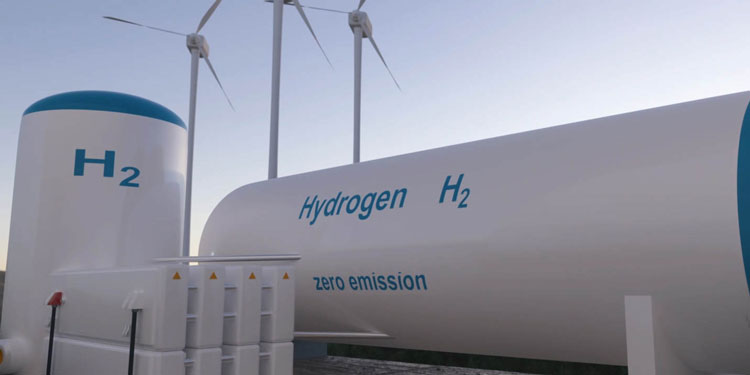Technology initiative to boost hydrogen and the decarbonisation of our industry
The Spanish Technological Platform for Energy Efficiency (PTE-ee) has just published a Priority Technology Initiative (PTI) dedicated to hydrogen for the improvement of energy efficiency in a decarbonised industry (without CO2 emissions).
The ITPs are instruments created by the PTE-ee for the detection of technological developments that allow the industrial fabric to grow and provide high intrinsic value (employment, sustainability, technological leadership, export) to the regional and national economy, within a time horizon of a few years.
Climate change and its harmful impacts require an urgent transition of our energy model, shifting the use of fossil fuels towards other less polluting renewable energy sources. Beyond efficiency in energy use, the challenge today lies not only in the installation of more renewable energy plants, but also in their management, so that we are able to cover 100% of energy demand in the coming decades. To this end, and due to the fact that the generation of energy through the use of renewable sources is not continuous, but depends, among other factors, on weather conditions, it is necessary to use efficient technologies to store this energy, connect the country’s main energy infrastructures (electricity and gas grids) and use it in means of transport. In recent years, hydrogen generation technologies, its storage systems, as well as its entire set of applications, have been accompanied by major technological advances that make the routes for the generation, storage and use of green hydrogen a reality today.
The recently published document responds to the conjunction of the emergence of policies at European and national level to mitigate the effects of climate change, with the maturity of many of the main technologies involved and the willingness of institutions to invest in the energy transition towards a future without CO2 emissions. In this way, the ITP aims to give a voice to professionals, both academic and industrial, working in the development and application of hydrogen technologies, to analyse, first hand, the starting point and the needs of the country, in order to achieve the objectives of climate neutrality in the industrial sector, set for 2030 and 2050.
This document was born thanks to the collaborative work of an interdisciplinary group of expert researchers in the field, belonging to different organisations: Marc Torrell, from the Catalonia Institute for Energy Research (IREC), Esperanza Montero and Pablo Lara, from ARIEMA Energía y Medioambiente S.L., a company specialised in hydrogen technologies, Miguel Ángel Laguna, from the Instituto de Nanociencia y Materiales de Aragón, INMA (CSIC – University of Zaragoza) and Guillermo José Escobar, from the Spanish Technological Platform for Energy Efficiency (PTE-ee).
Marc Torrell, IREC researcher and coordinator of the initiative, tells us that “the effort to synthesise the current state of industrial solutions based on the use of green hydrogen for decarbonisation has confirmed the maturity of these technologies, from production systems to subministering and final use, as well as the predisposition of the Spanish industrial sector to enter any of the points of this new value chain”.
This ITP focuses on industrial decarbonisation, with special interest in industries with intensive energy consumption or, directly, with hydrogen consumption as a raw material. Today, most hydrogen is extracted from natural gas, in a process that generates pollutant gas emissions into the atmosphere and requires high electricity consumption, the so-called grey hydrogen. Green hydrogen, however, is produced by a chemical process, the electrolysis of water. In this process, water is broken down into oxygen and hydrogen by means of electricity from renewable sources. The adoption of green hydrogen consumption by these sectors would lead to a significant reduction in CO2 emissions. Spain is expected to install more than 4 GW of renewable energy for the generation of green hydrogen for the decarbonisation of industry and mobility by 2030.
Guillermo José Escobar, technical coordinator of the PTE-ee, welcomed the joint work carried out as “Spanish industry must meet very demanding decarbonisation targets, and needs to have sustainable fuels for operations that cannot be electrified”, referring to hydrogen. He adds that “it is essential to put on the market economically accessible technology for the generation, storage, distribution and use of green hydrogen in our factories, taking advantage of and strengthening the existing R&D infrastructure”.
The industries that use hydrogen, to date grey, as a raw material (oil refining, fertilisers, iron and steel, and chemical products) have the greatest potential to boost the use and production of green hydrogen in the short term. The emergence of these early projects and the adoption of the technology will have a knock-on effect for the development and deployment of hydrogen technologies domestically by other companies, either as end-users or as producers of technology or renewable energy.
05/03/2021









